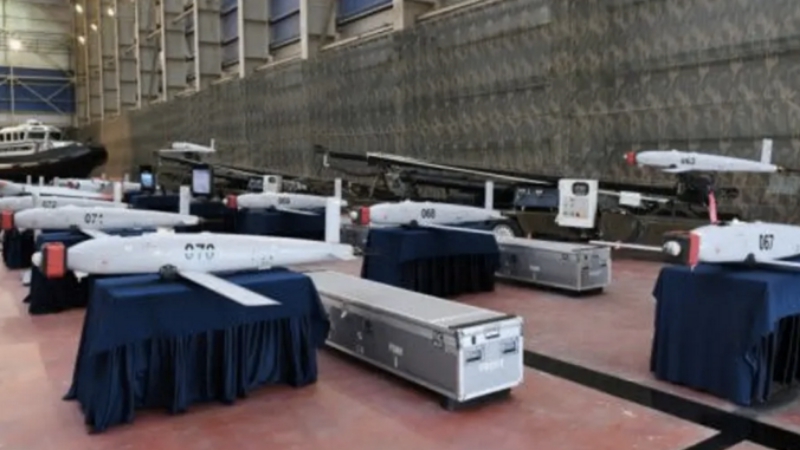Elbit Systems has sold Azerbaijan its latest unmanned aerial vehicle which is capable of long-range precise tactical kamikaze strikes, The Jerusalem Post has learned.Called the SkyStriker, it has been described by Elbit Systems “as a silent, invisible, and surprise attacker,” which “delivers the utmost in precision and reliability, providing a critical advantage in the modern battlefield.”
The fully autonomous loitering munitions system can carry a warhead of up to 10 kilograms and has a maximum loitering time of two hours. With a maximum speed of 100 knots the SkyStriker can reach a distance of 20 km within 6.5 minutes.
The drone is also easy to deploy in the field, and with a quiet electric engine it allows operators to observe and identify enemy targets.Operators of the platform can program the drone to hover above an area before it dives towards a target at a speed of up to 300 knots, destroying the target on impact.
According to the AzeriDefense website, Azerbaijan is the first international customer of the SkyStriker. Some 10 SkyStrikers are seen in pictures released by the website as well as Azerbaijan President Ilham Aliyev inspecting a Harop suicide drone produced by Israel Aerospace Industries.
The Central Asian country which borders Iran has become the main supplier of crude oil to Israel and has become a major recipient of Israeli military hardware in recent years, with the Stockholm International Peace Research Institute (SIPRI) placing Azerbaijan as the third largest consumer of Israeli arms, having bought $137m. worth in 2017.
But last year another Israeli company found itself in the middle of a storm when the Defense Ministry suspended its export license following an investigation into claims that they had been asked by Azerbaijan to carry out a live demonstration of an armed unmanned aerial vehicle against an Armenian military position with it’s Orbiter-K loitering suicide drone.
The firm, Aeronautics Defense Systems, had opened a factory in the country to build the company’s Aerostar and Orbiter UAVs in 2011.
In 2016 during a flare-up of violence between Azerbaijan and Armenia over the enclave of Nagorno-Karabakh it was reported that Baku used suicide drones against Armenian targets, including targeting a bus by a Harop drone killing seven soldiers.
Located within Azerbaijan, Nagorono-Karabakh is internationally recognized as being part of the Central Asian country but a large part of it is governed by separatists who seized control of the mountainous region backed by Yerevan in a war in the 1990s.
Despite a ceasefire signed by the two foes in 1994, they have never signed a peace treaty and the long standing dispute over the enclave has in recent years led to the deaths of dozens of soldiers.
Armenian ambassador Armen Melkonyan later delivered a formal protest to Israel over the weapons, stressing that it is Jerusalem’s obligation to ensure that Israeli weapons systems do not take part in attacks by either side.
“Armenia and Azerbaijan are both friendly to Israel and it is inconceivable that Israeli weapons be used in a war between the two countries over the Nagorno-Karabakh region,” she wrote shortly after the incident with the Harop.
A year after the violent flare-up in Nagorno-Karabakh, a June report by Crisis Group warned that the two countries were “closer to war than at any point since the 1994 ceasefire.”
The report stated that since the end of the April 2016 escalation, Azerbaijan has increased its spending on weapons, procuring heavy weaponry and other military equipment from countries such as Israel, Russia, Pakistan and Turkey.
Source: The Jerusalem Post

